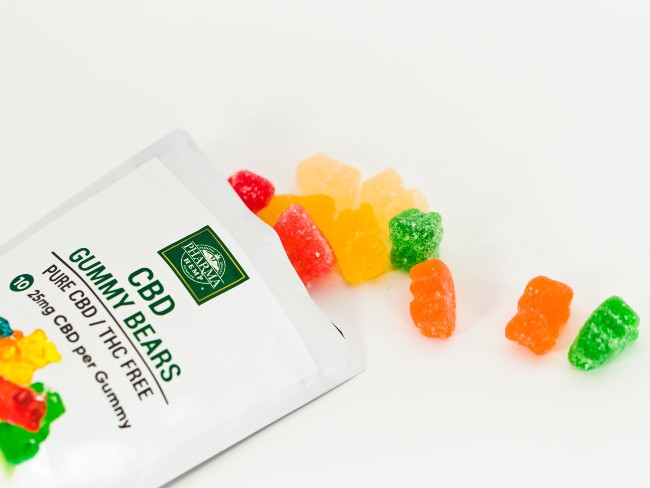
Tuesday September 14, 2021
 News
News
California’s CBD and hemp industry is about to change in some big ways. Assembly Bill 45, which legalizes adding hemp extracts to food, drinks, and beauty products has been approved by the state legislature and now heads to Governor Gavin Newsom’s desk for signing. Gov. Newsom has signaled his intention to sign the bill into law, and with the approval of both houses already in place, it is likely to pass as-is. Some points of the new legislation have the California hemp community up in arms, and others celebrating a win.
What Does Assembly Bill 45 Do?
Assembly Bill 45 will amend legislation in California’s Sherman Food, Drug, and Cosmetic Law which regulates numerous aspects on how these products can be sold. The primary change that AB 45 will enact is to allow for hemp-infused food, drinks and beauty products to be produced and sold in California. However, the law also implements other important changes regarding testing and regulation, “inhalable” hemp products, and hemp-derived cannabinoids which may have serious impact on the current California hemp market
Let’s take a look at what AB 45 entails.
Why Is California Legalizing Hemp-Infused Products?
Though hemp-derived products (including hemp-derived CBD products) have been generally legalized on a federal level under the 2018 Farm Bill, hemp extracts are not federally regulated, and thus cannot be added to other food and beauty products intended for human consumption (or animal consumption, for that matter).
It is specifically because of a lack of federal regulation, which the industry has been pressing for since the passing of the Farm Bill, that California has pursued a state system of regulation.
Before the passing of AB 45, selling products with hemp-derived CBD in them was prohibited, and stores or vendors who produced and sold those products were subject to having their stock seized or deemed unsellable by law enforcement authorities.

In order to do make these products legal, the state must amend the Sherman Food, Drug and Cosmetics Law because it “prohibits the manufacture, sale, delivery, holding, or offer for sale of adulterated foods, beverages, or cosmetics, if it bears or contains any poisonous or deleterious substance that may render it injurious to the health of a person or other animal that may consume it.”
Because hemp extracts are not currently approved or regulated by the U.S. Food and Drug Administration, they cannot be established as safe additives. If they are added to products as an unapproved substance, that product might then be seen as “adulterated” and not considered legal to sell or purchase.
SB 45 amends the law to specifically say a product “is not adulterated by the inclusion of industrial hemp or cannabinoids, extracts, or derivatives from industrial hemp if those substances meet specified requirements...” effectively clearing the path for CBD-infused food, drinks, and beauty/wellness products.
Overview of California Assembly Bill 45
Beyond allowing for hemp extracts to be used as additives to food and other products, AB 45 implements other changes to the state’s hemp market.
Regulation and Testing
AB 45 will create a regulatory system for hemp products similar to adult-use and medical marijuana, where products must be laboratory tested for cannabinoid content, contaminants, and harmful substances. Products containing hemp extracts must be labeled similar to regulated THC products including:
- The product name.
- The name of the product’s manufacturer, packer, or distributor, and their address and telephone number.
- The batch number, which matches the batch number on the product.
- The concentration of cannabinoids present in the product batch, including, at minimum, total THC and any marketed cannabinoids or ingredient, as required by the department in regulation.
- The levels within the product batch of contaminants
- The product expiration or best by date, if applicable.
- A statement indicating that children or those who are pregnant or breastfeeding should avoid using the product prior to consulting with a healthcare professional about its safety.
- A statement that products containing cannabinoids should be kept out of reach of children.
- The following statement, “THE FDA HAS NOT EVALUATED THIS PRODUCT FOR SAFETY OR EFFICACY.”
Hemp-derived Cannabinoids
The law acknowledges “THC preparations over 0.3%” are prohibited, and further establishes that, “the bill would define ‘THC’ for these purposes and would authorize the department to include or exclude comparable compounds from the definition of THC for purposes of regulation as industrial hemp-based on the compound’s intoxicating effect, or lack thereof.”

Because they are psychoactive, this means that preparations such as delta-8 THC, delta-10 THC, and THC-O could all be considered THC under the new law, and thus would not be allowed in hemp products in concentrations of higher than 0.3%. This alone could have huge implications on the emerging novel cannabinoid market and will force CBD companies that sell or produce these products to drop them. This comes at a time when delta-8 is the industry’s fastest-growing product according to Fortune.
Health Claims
The legislation bans any “health-related statement, as defined, that is untrue in any particular manner as to the effects on health of consuming products containing industrial hemp or cannabinoids, extracts, or derivatives from industrial hemp.”
This is not much different than the existing guidelines for hemp products, which are not allowed to make health claims because they are not FDA or otherwise federally approved, however, it now brings infused food, drink, and cosmetics under the same rules.
Smokable/Inhalable Hemp
A more controversial side of the bill deals with the issue of inhalable hemp products. Once the bill is signed, retailers will have to pause the sale of inhalable products until a system of taxation can be established. However, the bill does not set a deadline for when the tax must be established by, effectively leaving producers of inhalable products in the wind.
State legislation is not particularly known for its speed and efficiency, and any delay will mean heavy losses for inhalable product producers. This facet of the bill could effectively put a lot of hemp operations out of business. Some businesses may stay afloat by selling to other states. Though AB 45 halts the sale of inhalable hemp products in California until taxation is implemented, it permits interstate sales immediately.
The ability to sell out-of-state doesn’t mean that all losses will be avoided. Producers will have to seek out new buyers and account for additional shipping costs. Any change in business is going to come with costs, and moving from a local distributor to a national one is no small move. As is the common refrain in cannabis, small businesses will likely be hit the hardest, while larger companies can use their capital to weather the storm and be well-positioned once legislation is settled.
Will Assembly Bill 45 Pass?
Governor Gavin Newsom is expected to sign the bill into law after it passed both the statehouse and senate. Any changes to amendments to the bill will have to wait until the next legislative session if it passes.
How will AB 45 affect the CBD market in California?
For producers and retailers of food, beverages, and cosmetics infused with hemp extract, this new legislation is a big win. Companies will be able to register with the state to ensure that their products and production methods fall within California’s guidelines, hopefully ending the days of raids and ruining stock. Ideally, this will bring stability to retailers, producers, and consumers alike. With market stability, market growth is likely to follow. Though increased regulation may prove to be a barrier to some hemp businesses, the overall increased safety and reliability of hemp-infused products could be a boon worth the headaches.
However, the new legislation appears to prohibit smokable hemp from being sold in California upon its signing, and a large section of the state’s hemp growers farm hemp specifically intended for smoking.

Furthermore, as the law is written it covers “inhaled” hemp extracts, and thus could include vape cartridges with hemp extract as well, putting businesses that produce and sell them at risk. Thus, for anyone in hemp not involved in food or cosmetics, AB 45 could spell disaster, or at least cause some serious disruptions to operations and earnings.
AB 45 will allow for inhalable hemp products once a system of regulation and sales is established, but there’s no official timeline or deadlines set for when that must happen. Until the state chooses to act, those hemp farmers and vape producers will be left hanging in limbo, likely burning through cash to stay afloat. For smaller or medium-sized businesses, it may be too much to keep operating.
How will AB 45 affect the CBD market in the US?
One of the interesting caveats about inhalable hemp products is that upon the signing of the bill, though they are prohibited in California until a system of taxation can be established, they are permissible for sale to other states immediately.
According to the California Department of Food and Agriculture, “over a third of the country's vegetables and two-thirds of the country's fruits and nuts are grown in California.”
The farming prowess of California is undeniable. With restrictions on local sales prohibited, California producers of inhalable hemp products may then turn to the national market to sell their goods. The influx of supply could affect pricing elsewhere. How this change will ripple out into the larger market remains unclear, but one thing is for sure, the impact will be large if all of the state’s stock is to be directed outside its borders.
Conclusion
AB 45 leaves a lot to still be sorted out, but makes an important first step towards a more formalized hemp market. It may serve as a case study for what further federal hemp legalization could entail (or identify problems a national system can then work to avoid). The law’s full impact remains to be seen, and regardless of how well things go with its implementation, there are likely to be a few losers in the shift. As legislators parse the new laws into real-world application, it remains to be seen if they will be able to minimize negative effects.
What are your thoughts on this new legislation in California? Share your comments in the discussion forum below.
Photo Credit: R+R Medicinals (license)







